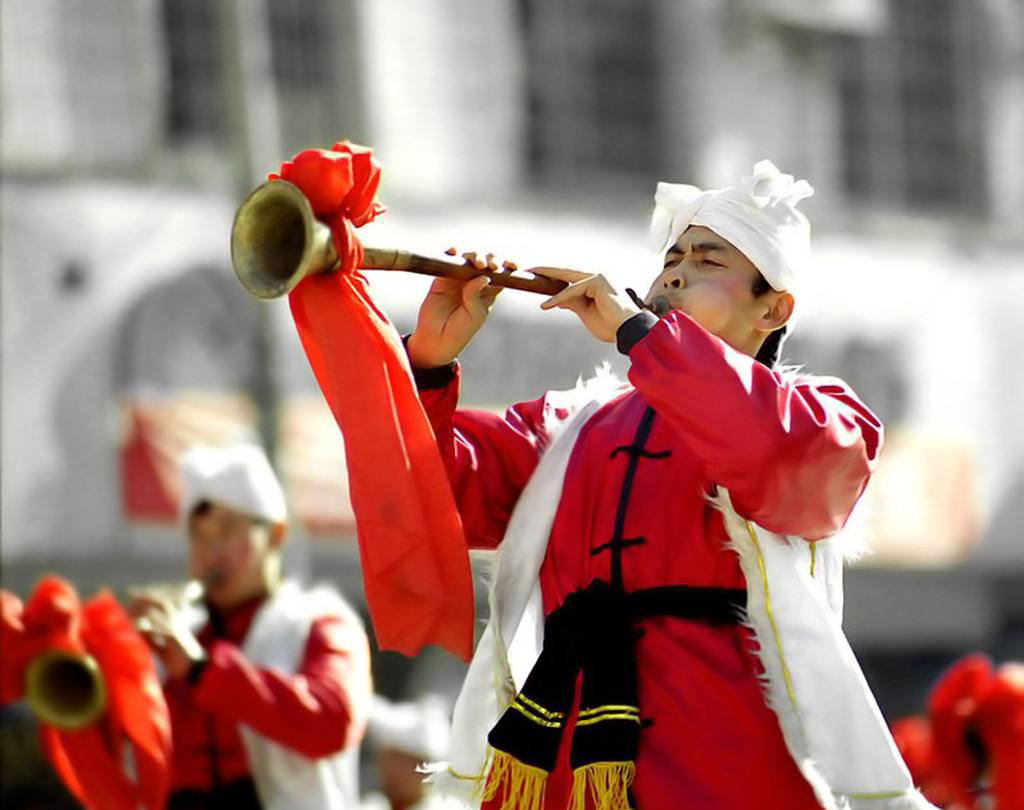Compelling Chinese stories in folk music

Zhao Jiping used suona horns as a significant music element in the soundtrack of the movie Red Sorghum, which symbolized the characters’ inner desires.
The first time I created music for movies was in the 1980s, when the northwestern music style was popular in Chinese music circles. At that time, northwestern Chinese music was known for its energetic, vigorous and passionate style, which accorded with Chinese people’s spirit of vitality and ambition amid the reform and opening-up.
In 1986, Zhang Yimou brought the movie script for Red Sorghum to my home and asked me to do the soundtrack for his first movie. Given the fiery red sorghum swaying in the wind in the movie, I suggested we include suona horns, a kind of woodwind folk instrument with a loud and high-pitched sound, to accompany it. The sound helped to express the characters’ inner screaming desires and encouraged me to further explore the path of Chinese folk music.
Although the natural conditions in western China are barren, this western Chinese music is magnificent. A series of profound research projects have proven that various forms of Chinese music, such as Gansu Hua’er songs and the Mukam style of Uyghur classical music, exerted a deep influence in many countries along the Silk Road, including Tajikistan, Kyrgyzstan, Uzbekistan and Iran. This demonstrates that Chinese music has contributed to the integration of world cultures.
China is rich in folk art. Every time I enjoy Chinese folk music, engravings and paintings, I always feel very passionate. In return, the love for Chinese folk art allows me to become deeply immersed in the ocean of folk art with all my heart, which in turns helps me gain a profound understanding of art and accumulate venerable musical experiences.
When I write songs for TV dramas, such as Water Margin and Qiao’s Grand Courtyard, I’m not only fortunate to hear a variety of traditional local operas, but also I can spend amounts of time doing research and investigations in varied places.
In the summer of 2016, the large-scale symphony suites Great Qinling Mountains premiered at the stage of Xi’an Conservatory of Music. In order to create this work, I led a team with members of the post 50s, 70s and 80s generations to collect folk songs from around the Qinling Mountains several times. Along the tour, we listened to drum music of Chang’an, the ancient capital of the Tang Dynasty, visited Taoist temples and followed the footsteps of great Tang poets. We mixed all these folk elements in this symphony and utilized our folk music as a common language to build a dialogue with the world.
Zhao Jiping is the president Shaanxi Literary Federation, former chairman of Chinese Musicians Association and president of the Xi’an Conservatory of Music.
